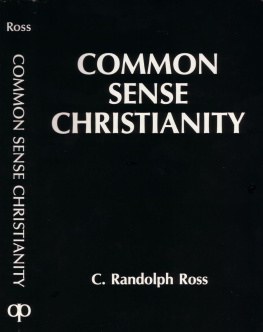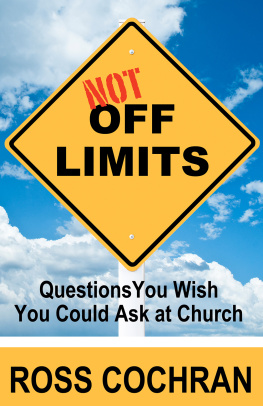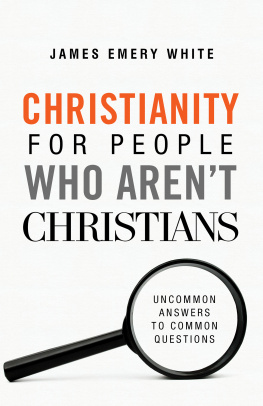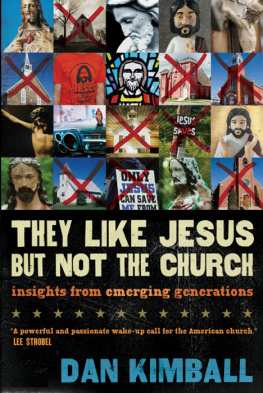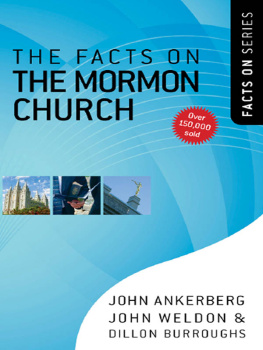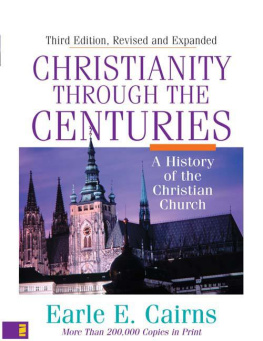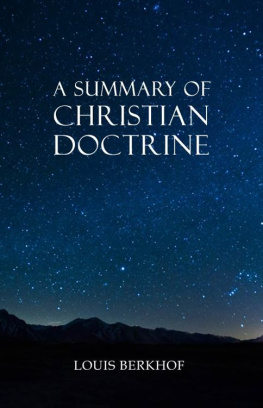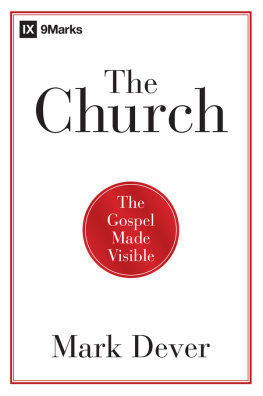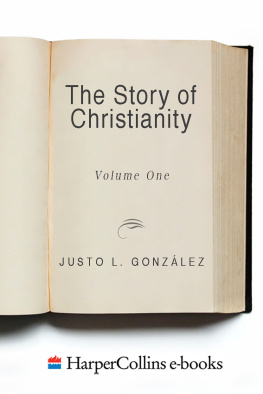C. Randolph Ross - Common Sense Christianity
Here you can read online C. Randolph Ross - Common Sense Christianity full text of the book (entire story) in english for free. Download pdf and epub, get meaning, cover and reviews about this ebook. year: 2010, publisher: Occam Publishers, genre: Religion. Description of the work, (preface) as well as reviews are available. Best literature library LitArk.com created for fans of good reading and offers a wide selection of genres:
Romance novel
Science fiction
Adventure
Detective
Science
History
Home and family
Prose
Art
Politics
Computer
Non-fiction
Religion
Business
Children
Humor
Choose a favorite category and find really read worthwhile books. Enjoy immersion in the world of imagination, feel the emotions of the characters or learn something new for yourself, make an fascinating discovery.
- Book:Common Sense Christianity
- Author:
- Publisher:Occam Publishers
- Genre:
- Year:2010
- Rating:4 / 5
- Favourites:Add to favourites
- Your mark:
- 80
- 1
- 2
- 3
- 4
- 5
Common Sense Christianity: summary, description and annotation
We offer to read an annotation, description, summary or preface (depends on what the author of the book "Common Sense Christianity" wrote himself). If you haven't found the necessary information about the book — write in the comments, we will try to find it.
Common Sense Christianity — read online for free the complete book (whole text) full work
Below is the text of the book, divided by pages. System saving the place of the last page read, allows you to conveniently read the book "Common Sense Christianity" online for free, without having to search again every time where you left off. Put a bookmark, and you can go to the page where you finished reading at any time.
Font size:
Interval:
Bookmark:
COMMON SENSE CHRISTIANITY
C. Randolph Ross
Copyright 1989 by C. Randolph Ross.
All rights reserved.
Occam Publishers
www.OccamPublishers.com
www.commonsensechristianity.org
ACKNOWLEDGEMENTS
The Scripture quotations used in this book are from the Revised Standard Version Bible, copyright 1946, 1952, 1971 by the Division of Christian Education of the National Council of Churches of Christ in the USA and are used by permission.
Acknowledgments for Appendix B:
Grateful acknowledgment is made to Random House, Inc., for permission to reprint excerpts from The First Coming: How the Kingdom of God Became Christianity by Thomas Sheehan. Copyright 1986 by Thomas Sheehan. Reprinted by permission of Random House, Inc.
Grateful acknowledgment is also made to The Crossroad Publishing Company and William Collins Sons & Co. Ltd. for permission to reprint excerpts from Jesus: An Experiment in Christology by Edward Schillebeeckx. English translation copyright 1979 by William Collins Sons & Co. Ltd. Reprinted by permission of The Crossroad Publishing Company in the United States of America and by permission of William Collins Sons & Co. Ltd. in the British Commonwealth.
I wish to extend my deep appreciation to all those individuals who encouraged me during the ten years of the writing of this book. In particular, t wish to thank those - parishioners and others - who shared with me their questions and their faith; the Rev. Loren G. House, Jr., for his continuing moral support over the long course; and Mrs. June House for her faithful rendering of hand-scrawled pages into a typed manuscript. I also need to mention my family: my daughter Rachael, who has shared much of her growing up with the growth of this book, and my wife, JoAnne, whose support for the carrying through of this project has been invaluable.
COMMON SENSE CHRISTIANITY
TABLE OF CONTENTS
Introduction
PART I: COMMON SENSE, FAITH AND THE GOD WHO GOES ZAP
Chapter 1: Common Sense
Chapter 2: The Bible
Chapter 3: The God Who Goes Zap
Chapter 4: Miracles and Religious Significance
PART II: TRADITIONAL DOCTRINE
Chapter 5: Can This Be Christian?
Chapter 6: The Resurrection: Historically Probable, Religiously Insignificant
Chapter 7: The Question of the Divinity of Jesus of Nazareth
Chapter 8: Being Right vs. Being Christian: The Distinction between Faith and Doctrine
Chapter 9: Who Is Jesus of Nazareth?
PART III: THE COMMON SENSE AND FAITHFUL ALTERNATIVE
Chapter 10: Jesus as the (Functional) Christ
Chapter 11: Talk About Talk About God
Chapter 12: God: Concepts and Images
Chapter 13: Why Jesus of Nazareth?
Chapter 14: Reconstruction: Sin and Salvation
Chapter 15: Reconstruction: Christian Myth
PART IV: THE CHRISTIAN LIFE
Chapter 16: The Stumbling Block: Living the Faith
Chapter 17: Possessions and the Use of Money
Chapter 18: The Economic System
Chapter 19: A New Spirituality
APPENDICES
Appendix A: The Canon, the Christ and the Historical Jesus
Appendix B: Biblical Scholarship and the Resurrection: Did He or Didnt He?
Common Sense Christianity by C. Randolph Ross
Introduction
You will know the truth, and the truth will make you free.
(John 8:32)
I am a heretic. I am stating this right at the start so nobody feels misled.
I am a heretic. In many of our churches this no longer has any meaning, but in centuries past this name would have brought disgrace, banishment, and all too often death.
What do I mean today by applying this word to myself? Two things: (1) that I place myself firmly and staunchly within the Church and the Christian faith; and (2) that I am firmly and staunchly convinced that much of what the Church has taught as doctrine for most of its twenty centuries, and much of what constitutes orthodox belief today, is just plain wrong.
This is a bold statement. But I do not make it boldly. I make this claim in fear and trembling, driven by my love for the Church and by the fact that what is at stake is nothing less than the future generations whom we are in danger of losing. I am driven also by the clear conclusions of reason and a careful reading of the Scriptures. It has been said that the four foundations of our faith are Scripture, tradition, reason, and experience. This formulation makes sense, but I find myself compelled by Scripture, reason and experience to disagree with much of what constitutes traditional doctrine.
Before I begin my argument, I would ask the reader to keep in mind three points: (1) In many respects, I am simply reclaiming for us today the freedom and diversity found within the New Testament itself. Most of our official Church doctrine was developed in the Greco-Roman world in the several centuries after Jesus of Nazareth, and does not necessarily represent the Biblical position; (2) For me to claim that my position is right and (therefore) that all others are wrong does not mean that I claim that the others are not valid Christian beliefs. This is a distinction of utmost importance (see Chapter 8); (3) Theology, as the conceptualization and explanation of our faith, must in any case be recognized as secondary to the living of this faith. (See Chapter 8 on this also.)
With these points in mind, I am going to argue against an archaic belief system which has become a harmful and unnecessary obstruction to many honest seekers for whom Christianity might otherwise be an option. Furthermore, as official doctrine this orthodoxy instills self-doubt in many thinking Christians and serves to keep them Out of the mainstream of Church thought and life. It is against these traditional doctrines that I will be arguing, not God. I am arguing for God, I am arguing to free our understanding of God from the prison of these doctrines -- doctrines from a particular time and place that are too often considered to be our final destination, instead of guideposts along the way; doctrines that are too often used to stop questions instead of to help find answers.
I will also attempt to outline a viable and faithful alternative for modern Christians. I call this alternative common sense Christianity.
I do not mean to suggest by this that Christianity should be reasonable. I doubt that the life and teachings of Jesus the Christ will ever seem reasonable to a majority of our society. My purpose, rather, is to remove the unnecessary obstructions and stumbling blocks in order to enable people to confront the central and ultimate stumbling block: the call to commitment that confronts us in the message of Jesus of Nazareth, in the understanding he gives us of God and of love, of truth and reality. It is vital that people reject or accept Christianity because of this central message and challenge, and not because of a secondary and unnecessary theological framework which many of us find outdated and incomprehensible.
By common sense I mean the shared world-view, or basic assumptions, with which we approach and understand our universe. I mean a common sense as to how this universe works.
This common sense does not remain static. It changes from age to age and from culture to culture. And all too often the precepts of our faith are presented in words and concepts that reflect a common sense that is very different from ours today. Yet the insights and validity of Christianity are not confined to any one age or culture. So the challenge for us is to conceptualize our Christian faith in a way that is not dependent on the common sense of a different time, in a way that is understandable to us today.
One final note: my intention has been to present my case in language accessible to lay people. I have avoided numerous footnotes and references, and have tried to avoid technical language and theological jargon. The discussion of basic doctrine is too important to leave to scholarly journals and seminary graduates. It belongs to all the people who are trying to follow Jesus the Christ.
Font size:
Interval:
Bookmark:
Similar books «Common Sense Christianity»
Look at similar books to Common Sense Christianity. We have selected literature similar in name and meaning in the hope of providing readers with more options to find new, interesting, not yet read works.
Discussion, reviews of the book Common Sense Christianity and just readers' own opinions. Leave your comments, write what you think about the work, its meaning or the main characters. Specify what exactly you liked and what you didn't like, and why you think so.

